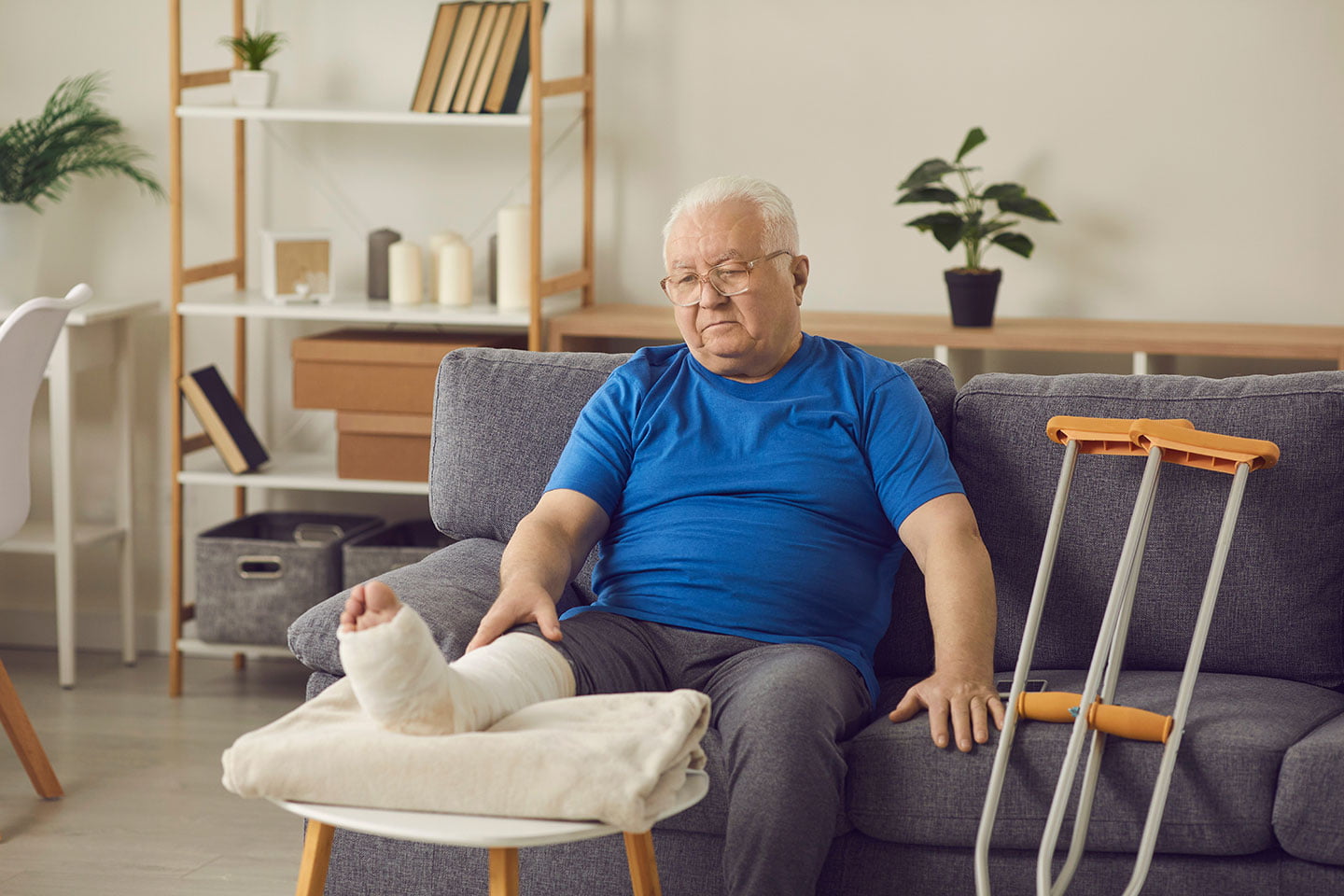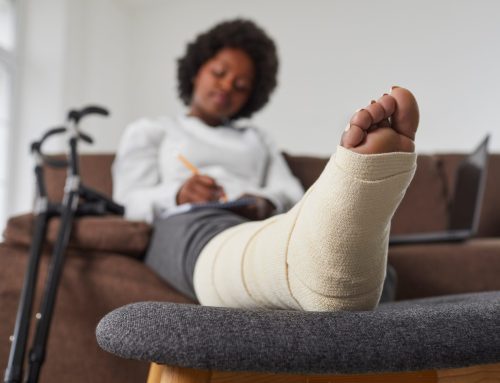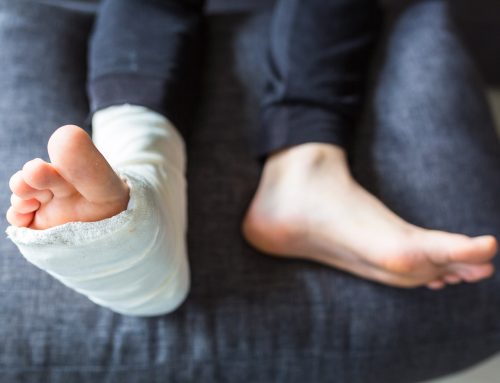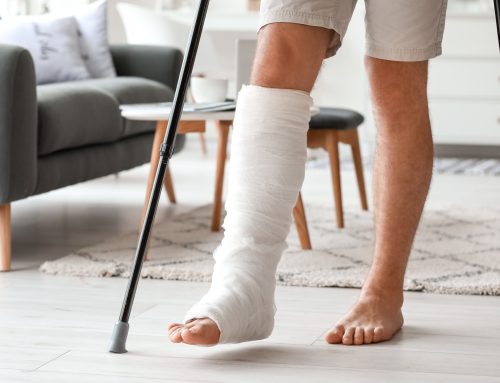We’ve all been there – an unfortunate slip, a sports injury, or an accident leaves us with a bone fracture. While the healing process may seem to drag on forever, there are several strategies you can adopt to speed up your recovery. In this blog post, we’ll share tips and tricks for accelerating bone fracture healing and getting you back on your feet as soon as possible.

The Basics of Bone Fracture Healing
The human body is a marvel of self-repair, and bone fractures are no exception. When a bone breaks, your body initiates a complex healing process involving three main stages: inflammation, repair, and remodelling. This process can take several weeks to months, depending on the severity of the fracture and the individual's overall health.
One of the most critical factors in fracture healing is proper immobilization. When a bone is broken, keeping the affected area stable and preventing movement is crucial to allow the healing process to progress smoothly. Depending on the location and severity of the fracture, your healthcare provider may recommend a cast, brace, or splint to immobilize the injury.
Remember to follow your doctor’s recommendations regarding weight-bearing restrictions and the duration of immobilization. Attempting to resume activities too soon can hinder the healing process and may result in complications or delayed recovery. Read on for more tips about how to speed up bone fracture healing.
Nutrition for Bone Healing
Proper nutrition plays a vital role in speeding up fracture healing. Consuming a well-balanced diet rich in nutrients essential for bone health can support and accelerate the healing process. Key nutrients to focus on include:
Calcium: Found in dairy products, leafy greens, and fortified foods, calcium is a crucial building block of bones.
Vitamin D: This essential nutrient aids in calcium absorption and can be obtained from fatty fish, egg yolks, fortified foods, and sunlight exposure.
Protein: Protein provides the building blocks for new bone tissue and can be found in lean meats, poultry, fish, legumes, and dairy products.
Vitamin C: Important for collagen production, vitamin C can be found in citrus fruits, berries, and various vegetables.
Get Moving (Safely) with Physical Therapy
Once your doctor has given you the green light to start moving, physical therapy can be a game-changer for speeding up fracture healing. A physical therapist will work with you to develop a tailored exercise program that promotes bone healing and helps you regain strength, flexibility, and mobility.
Low-impact activities, such as swimming and cycling, can be excellent options for maintaining fitness while avoiding excessive stress on the healing bone. Remember always to follow your healthcare provider's recommendations and progress gradually to avoid setbacks in your recovery.
Quit Smoking and Limit Alcohol Consumption
If you're a smoker, you’ll want to significantly decrease your use or consider quitting altogether. Smoking has been shown to delay fracture healing, as it constricts blood vessels and reduces the delivery of essential nutrients and oxygen to the injury site. Additionally, smoking can negatively impact bone density, making you more prone to future fractures.
Excessive alcohol consumption can also hinder bone healing, as it can interfere with your body's ability to absorb calcium and other essential nutrients. Limiting alcohol intake during your recovery can help promote a faster healing process and reduce the risk of complications.
Stay Positive and Manage Stress
Your mental health can significantly impact your physical recovery. Maintaining a positive outlook and effectively managing stress can help speed up the healing process. Consider incorporating relaxation techniques such as deep breathing exercises, meditation, or gentle yoga into your daily routine. Additionally, staying connected with friends and family can provide much-needed emotional support during your recovery journey.
Get Adequate Sleep
Sleep is essential for the body's repair and recovery processes, including bone healing. Aim for 7-9 hours of quality sleep each night to give your body the rest it needs to heal efficiently. Creating a comfortable sleep environment, establishing a consistent sleep schedule, and limiting screen time before bed can help improve the quality of your sleep and promote faster healing.
Consider Supplements (with Caution)
While obtaining essential nutrients from whole foods is ideal, some individuals may benefit from supplements to support fracture healing. For example, calcium and vitamin D supplements can help ensure adequate intake for those with dietary restrictions or limited sun exposure. However, it's crucial to consult your healthcare provider before starting any new supplements, as they may interact with medications or have potential side effects.
Stay in Close Communication with Your Doctor
Regular check-ups and open communication with your healthcare provider are crucial for a successful and speedy recovery. Attend all scheduled appointments, ask questions, and share any concerns you may have. Your healthcare team can provide valuable guidance and recommendations tailored to your specific injury and recovery progress.
Patience is Key
While it's natural to want a speedy recovery, it's essential to remember that bone fracture healing takes time. Be patient and focus on the steps you can take to support your healing process. Trying to rush your recovery can lead to complications or setbacks that may prolong your healing time.
Low-Intensity Pulsed Ultrasound Technology
A non-invasive treatment known as low-intensity pulsed ultrasound technology activates cell reproduction, protein expression, and enhances cellular behaviour at the fracture site. This helps patients heal 38% faster than traditional approaches.
Adopting these tips and tricks gives your body the best chance for a swift and successful bone fracture recovery. While the healing process may seem daunting, remember that patience, proper nutrition, physical therapy, and a positive outlook can make a world of difference. Stay proactive in your recovery, and before you know it, you'll be back on your feet, ready to tackle life's adventures with renewed strength and resilience. Contact Fracture Healing for more information on the low-intensity pulsed ultrasound device that speeds up recovery.
Have you ever suffered from a fracture? How long did the healing process take? Would it have been beneficial to have a quicker recovery? Share your thoughts with our readers in the comments below.





